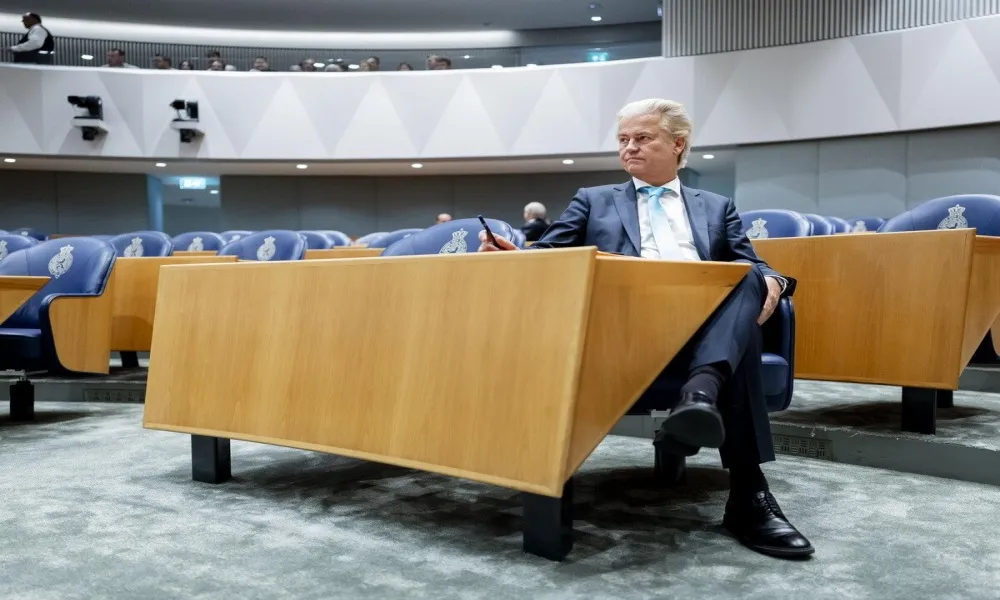The Party for Freedom (PVV) was never meant to be a collective project. In 2006, Geert Wilders founded it with the legal minimum of two “members”: himself and a foundation that also consisted solely of him. Their first act was to freeze future membership, ensuring the party would remain entirely under his control. Since then its structures have stayed as rigid as Wilders’s trademark blond coiffure.
A Leader-Centric Machine
Despite the absence of internal democracy, Wilders has become a dominant force in Dutch politics with anti-immigration, anti-Islam and anti-establishment messaging. The PVV holds no party congresses, no member events, and has no youth wing. Candidates are hand-picked by Wilders; former associates describe the party’s inner life as a “personality cult.”
Controversy has not dented his appeal. The PVV leads surveys with just over 21% of voting intentions, and Wilders, who helped bring down the last government, remains a cornerstone of the political landscape.
The Man Behind the Brand
Born in Limburg, on the Dutch periphery, Wilders grew up with an outsider’s sensibility. At 17, he spent a year in an Israeli settlement in the West Bank, an experience he says taught him that “if you want to win, you can’t play by other people’s rules.” He began in the liberal VVD, but his hard-line stance on Islam and migration led to a break. After filmmaker Theo van Gogh was murdered by an Islamist in 2004, Wilders became a target and has since lived under round-the-clock police protection, traveling in armored vehicles.
In practice, the PVV functions like a personal enterprise: no members, no elected bodies, no internal ballots. Its MPs answer to Wilders alone, and dissenters are swiftly removed. Former insiders call him charismatic but deeply suspicious, micromanaging every aspect of party life: “One mistake, a wrong post or statement, and you’re out,” a former MP says.
The model has spared the PVV the factional meltdowns that crippled other far-right parties, but it has also created staffing headaches and raised concerns about transparency, including allegations of murky funding links to U.S. far-right organizations.
From Shock Victory to Government Collapse
In the 2023 elections, the PVV stunned the country with 37 seats, becoming the largest force. Wilders was deemed too “politically toxic” to be prime minister, but his party secured nine ministries and steered the governing lineup. Less than a year later, he helped bring down that same government by demanding draconian deportation measures and military border monitoring, plunging the Netherlands back into crisis and putting Wilders center stage ahead of the 29 October vote.
Sources: Politico and lifo.gr
